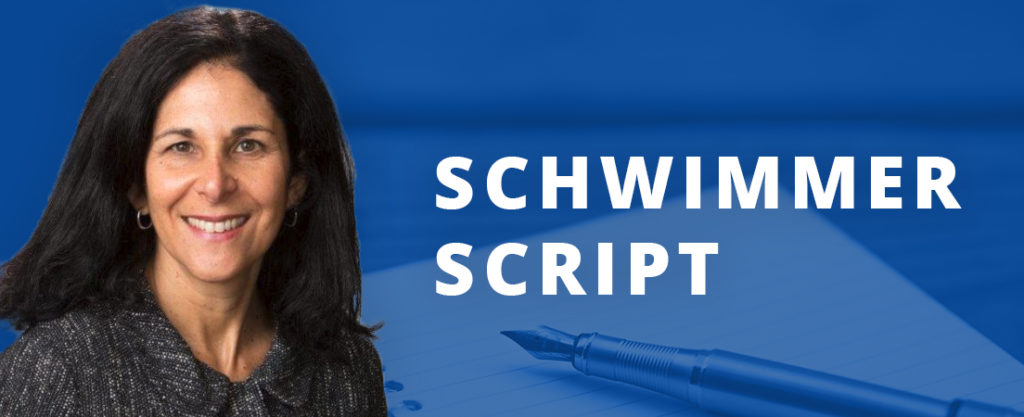Congress may surprise us and finally deliver on addressing surprise medical bills. Bi-partisan members of both Houses are working to get the No Surprises Act on President Trump’s desk before next week. The bill would apply to employer-sponsored insurance, generally regulated under federal law, and would cover about half or more of all Americans with insurance. In New Jersey, where the Quality Institute and others fought for nearly a decade to stop these unfair billing practices, our new state Surprise Billing Law does not automatically apply to these types of plans, known as ERISA plans. New Jersey employers can opt into the New Jersey law to take advantage of its protections —and many have done so, including large hospital systems — but they are not required to.
That is why federal legislation is essential not just for consumers around the nation, but also for us in New Jersey. The federal legislation would bring fairness to the billing process and reduce health care costs. One study found that 20 percent of commercially insured patients who received elective surgery with in-network primary surgeons and at in-network facilities still got hit with out-of-network charges. These bills can be hundreds, thousands, and even tens of thousands of dollars.
The federal bill takes patients out of the middle and creates a structure for health care providers and insurers to resolve payment disputes without the patient being involved. The federal bill would not preempt states with stronger protections than the federal bill. The bill, while similar to New Jersey’s bill, does provide consumers with stronger protections in some critical ways.
Here is an outline of the bill, according to the Committee of Ways and Means:
- Patients would not be subjected to surprise medical bills. They would only be responsible for their in-network cost-sharing amounts, including deductibles, in both emergency situations and certain non-emergency situations where they are not able to choose an in-network provider.
- Out-of-network providers could not balance bill patients unless they give notice of their network status and an estimate of charges 72 hours prior to the patient receiving out-of-network services — and only with the patient’s consent to receive the out-of-network care.
- Consumers would get a true cost estimate that describes which providers would deliver their treatment, the cost of services, and provider network status.
- Any amount the consumer pays for out of network providers or services would count toward their deductible as well as their maximum out-of-pocket costs.
- Air ambulances are subject to these same consumer protections.
- Insurers would make a payment to the provider that is determined either through negotiation or through an independent dispute resolution (IDR) process. There is no minimum payment threshold to enter IDR, and claims may be batched together to ease administrative burdens.
- An arbitrator would consider the “qualifying payment amount,” which is the median of contracted rates offered by the plan within the same insurance market — and based on 2019 contracted rates linked to the Consumer Price Index each year until 2023. An arbitrator can also use data from an All-Payer Claims Database to make a decision.
- The arbitrator may also consider the previous behavior of payer/plan. Did they show a good faith effort to enter into a network agreement? The arbitrator is required to consider information related to the training and experience of the provider, the market share of the parties, previous contracting history between the parties, complexity of the services provided, and any other information submitted.
- The bill provides for so-called baseball arbitration, meaning that each side makes a best offer. The Arbitrator picks one of the two. The loser pays arbitration costs. If the parties settle, they can share the costs.
- There would be additional consumer protections when insurance companies change providers in their networks, including a transition of care for people with complex care needs and appeal rights for consumers.
The package of legislation also calls for funds to support improved State All Payer Claims Databases (APCD), another policy the Quality Institute has long supported.
The data must be shared with authorized users such as employers, health insurers, providers, researchers, and others seeking to improve quality and contain costs.
I know from our work at the Quality Institute that this data would help us design new models of care, targeted interventions, or payment redesign — as well as identify troubling utilization trends that the payers and providers must address. In 2013, New Jersey passed up federal funding for an APCD. Now we have a chance to reverse that mistake. The grants are relatively small — $2.5 million over three years — but the funds will encourage states to work regionally and New Jersey should consider such a move.
Finally, the bill also requires health plans to have up-to-date directories of their in-network providers online. We have long called for these requirements, and state and federal auditors have found this weakness in various New Jersey insurance markets. Patients without timely and accurate information when choosing health plans and providers are acting in the dark.
I encourage you to learn more about the bill and express your support to your representatives. As our members, we know you, too, share our mission to improve health care quality, access, and affordability. This bill drives all those elements of our mission

